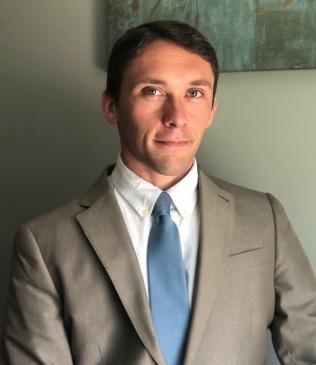The initiative provides standardized quality measures for local recovery programs throughout the state
By Alison Jones Webb
In response to the ongoing addiction crisis, Kentucky is working to establish counties and cities as “Recovery Ready Communities.” The initiative is meant to ensure that high-quality recovery programs are offered in localities throughout the state.
“Here in the commonwealth, we have been fighting a long battle against the opioid epidemic,” Gov. Andy Beshear (D.) said in June in response to a report that 2,250 Kentuckians died of drug overdoses in 2021, a 14.5% increase over the previous year. “This public health crisis has torn families apart and taken the lives of far too many Kentuckians, far too soon. Every day we must work together to fund recovery programs and treatment options so that we can continue to address this scourge and get our people the help they need.”
Kentucky’s House Bill 7, which passed the state legislature in 2021, created an Advisory Council for Recovery Ready Communities, and Beshear announced the members of the council last August. Since then, the group has been developing a Recovery Ready Community certification for counties and cities that will signal they’re equipped with the necessary support systems for people with substance use disorder (SUD). The certification program provides quality measures of an area’s recovery resources, evaluating the availability of high-quality treatment for people in “active, post and recovered addiction status.”

Since convening in 2021, the advisory group has gathered research on recovery ready communities, as well as information from organizations currently providing addiction and recovery support services. Gene Detherage, outreach and engagement specialist for the nonprofit Fletcher Group and native of Appalachian Kentucky, serves on the advisory council.
“The primary hope of the designation is that communities will engage with it to receive technical assistance and instruction on how they can better serve these parts of their populations and how they can drive toward better outcomes for these individuals,” Detherage says, noting that at this point the designation doesn’t necessarily come with funding or other preferential enhancements from the state budget. “City and county leaders across the state recognize substance use disorder as a huge problem, but that standardized ‘This is what you can do, this is what you can implement in your community to make a difference’—that hasn’t emerged yet.”
Detherage says that going through the certification process will allow communities to address questions such as:
- What do our re-entry services do?
- What are the programs offered in our jails?
- Does our school system offer evidence-based prevention programming for our kids?
- Do we allow for recovery housing?
- What’s going on in our emergency rooms?
- Are our homeless shelters connected and integrated with treatment opportunities?
“I’m a firm believer that to get good answers, you have to know the right questions,” says Detherage. “Ultimately, the goal of certification is to reflect that the community got the blueprint on how to make a difference and implemented the changes.”
A Key Partnership
In June the council announced its partnership with the Volunteers of America (VOA) to act as the administrator of Recovery Ready Communities. VOA will work with the council to develop the certification program, as well as with cities and towns to ensure they meet certification standards to effectively assist those struggling with addiction. Communities will be able to start applying for certification in January 2023.
“My biggest hope for this initiative is that it will create an avenue for communities that may still be reluctant to support recovery to have some cover to finally step out from under whatever stigma may be preventing them from implementing change.”
—Gene Detherage, Advisory Council on Recovery Ready Communities
“The drug epidemic is not a Kentucky issue or a political issue, but a nationwide issue that is affecting everyone and every state,” said Van Ingram, executive director of Kentucky’s Office of Drug Control Policy (ODCP). “The commonwealth is continuing to take many aggressive steps to end this crisis, by using a multidisciplinary approach with a team comprised of healthcare experts, law enforcement, advocates and public policy experts. Kentucky cannot continue to lose our citizens to overdoses, which not only cause thousands of families heartbreak but bring devastation to our communities. There is no simple answer to how we combat this public health crisis, but we must treat addiction as a medical issue, not just a criminal issue.”
Detherage sees the initiative as part of the evolution of treatment and recovery and the changing view of addiction, in Kentucky and across the U.S. “There’s an emerging consensus that it takes a holistic approach to get someone into recovery and retain them there if we want to avoid downstream consequences of untreated substance use disorder,” he says. “My biggest hope for this initiative is that it will create an avenue for communities that may still be reluctant to support recovery to have some cover to finally step out from under whatever stigma may be preventing them from implementing change. I hope that some good research framework gets built around this. If this goes well, the outcomes will have meaningful information to share with the rest of the country.”
Photo: Jennifer Grismer














